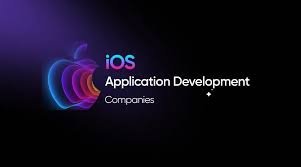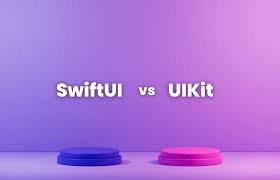Asset Tokenization Development: What You Need to Know Before Getting Started

The digital revolution has transformed how assets are owned, traded, and managed. Real World asset tokenization services in Dubai is at the forefront of this change, allowing businesses and investors to tokenize real-world assets for increased liquidity, security, and efficiency. But what does asset tokenization involve, and what should you know before getting started?
This guide explores the fundamentals of asset tokenization, how blockchain technology powers it, its benefits, and the crucial steps required for successful development.
What is Asset Tokenization?
Asset tokenization is the process of converting physical or intangible assets into digital tokens that are stored and traded on a blockchain. These assets can include:
- Real estate properties
- Precious metals like gold and silver
- Stocks, bonds, and securities
- Artwork and collectibles
- Intellectual property rights
- Commodities like oil, gas, and agricultural products
Each token represents full or fractional ownership, allowing for seamless investment, buying, and selling on blockchain-based platforms.
How Blockchain Powers Asset Tokenization
Blockchain technology is the backbone of asset tokenization development, offering a secure, transparent, and decentralized system for managing digital assets. Here’s how it works:
- Asset Selection: A tangible or intangible asset is chosen for tokenization.
- Smart Contract Development: A blockchain-based smart contract is created to manage transactions and ownership rules.
- Token Issuance: Digital tokens representing asset shares are generated and recorded on the blockchain.
- Trading & Ownership Transfer: Investors can buy, sell, or trade tokens efficiently on a decentralized exchange (DEX) or centralized trading platform.
- Regulatory Compliance: Legal frameworks ensure tokenized assets comply with jurisdictional laws and financial regulations.
Benefits of Asset Tokenization Development
1. Increased Liquidity
Tokenization enables fractional ownership, allowing investors to buy and sell portions of high-value assets, improving market liquidity.
2. Accessibility to Global Investors
Traditionally, investing in assets like real estate and commodities required significant capital. Tokenization democratizes investment opportunities, allowing retail investors to participate.
3. Reduced Costs & Intermediaries
Blockchain eliminates the need for costly intermediaries like brokers and banks, reducing transaction fees and administrative costs.
4. Security & Transparency
Blockchain records every transaction on an immutable ledger, preventing fraud and unauthorized modifications.
5. Faster Transactions
Smart contracts automate transaction processes, enabling instant and secure transfers of tokenized assets.
Key Use Cases of Asset Tokenization
1. Real Estate Tokenization
Properties can be divided into tokens, allowing investors to buy shares in high-value assets without the need for full ownership.
2. Stock & Bond Tokenization
Traditional equity and debt instruments can be tokenized, reducing settlement times and increasing investment accessibility.
3. Art & Collectibles
High-value artwork and collectibles can be fractionalized, enabling broader participation in exclusive markets.
4. Precious Metals & Commodities
Gold, silver, and oil can be tokenized, making commodity trading more transparent and secure.
5. Intellectual Property & Royalties
Content creators can tokenize intellectual property rights and distribute revenue through blockchain-powered royalty agreements.
Steps to Develop an Asset Tokenization Platform
For businesses and entrepreneurs looking to develop an asset tokenization platform, here are the critical steps:
1. Define the Asset Type
Decide whether your platform will support real estate, commodities, securities, or intellectual properties.
2. Select the Right Blockchain
Choose a blockchain network that suits your needs, such as Ethereum, Binance Smart Chain, or Polygon.
3. Develop Smart Contracts
Create secure and audited smart contracts that govern ownership, transactions, and compliance.
4. Regulatory Compliance & Legal Frameworks
Ensure adherence to financial regulations, including SEC guidelines, AML (Anti-Money Laundering) laws, and KYC (Know Your Customer) policies.
5. Build a User-Friendly Interface
A seamless tokenization platform should offer easy navigation for investors, asset owners, and traders.
6. Security & Auditing
Conduct smart contract audits and implement cybersecurity measures to protect against hacks and fraud.
7. Launch & Marketing Strategy
Promote your platform through SEO, social media marketing, influencer partnerships, and targeted advertising.
Challenges & Risks of Asset Tokenization Development
While asset tokenization offers numerous benefits, there are challenges to consider:
- Regulatory Uncertainty: Different jurisdictions have varying laws on tokenized assets, requiring careful legal planning.
- Security Risks: Poorly developed smart contracts can be vulnerable to hacking and fraud.
- Market Adoption: Educating investors and businesses on the advantages of tokenized assets is crucial for widespread adoption.
The Future of Asset Tokenization Development
The future of investing is shifting towards blockchain-based tokenization, with innovations such as NFT-backed assets, DeFi integration, and AI-driven asset management set to revolutionize the industry.
Governments and regulatory bodies are working on frameworks to integrate tokenized assets into mainstream financial markets. As blockchain adoption increases, tokenization will play a pivotal role in reshaping investment opportunities worldwide.
Conclusion
Asset tokenization development is paving the way for a more efficient, accessible, and secure investment ecosystem. Whether you’re an entrepreneur, investor, or business looking to tokenize assets, understanding the fundamentals of blockchain integration and legal compliance is essential.
As more industries adopt tokenized asset platforms, now is the ideal time to explore this transformative technology. Ready to take the next step? Connect with blockchain experts and asset tokenization developers today to get started!




